7 Wonders is a competitive board game that works with some intertwined dynamics. Resource management, card selection, interaction with opponents among others are key points to build the best civilization.
Unboxing, what's in the game
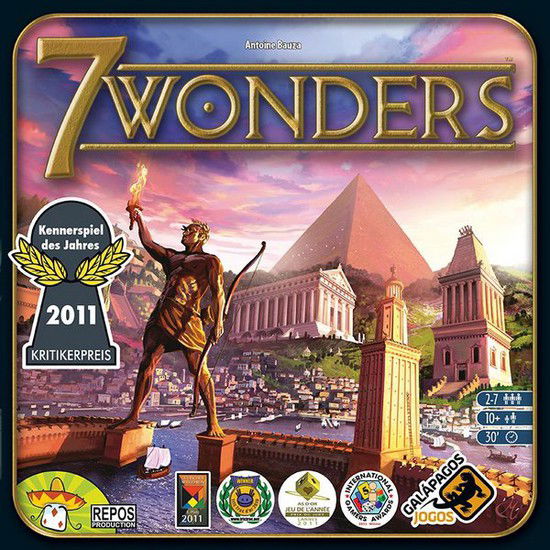
Each player must choose or draw one of the 7 Wonders as their starting point, each with different starting resources and specialties. From that, they will receive 3 coins and 3 different decks of cards will be shuffled, each one symbolizing an Era, and sequentially (from 1 to 3 Era) 7 cards will be distributed to each player.
7 is a very popular number in this game, so among the cards you receive, they can have up to 7 types:
- Brown cards - Raw Materials - are cards that produce resources for buildings
- Gray cards - Manufactured Goods - are cards that produce resources for guilds or science
- Blue cards - Civilian Structures - are cards that give direct victory points
- Green cards - Scientific Structures - are cards that give science points
- Yellow cards - Commercial Structures - are cards that give currency or produce resources or allow a lower rate of exchange of resources between players
- Red cards - Military Structures - are cards that increase your military power.
- Purple cards - Guilds - are cards that give points if you meet a certain criteria.
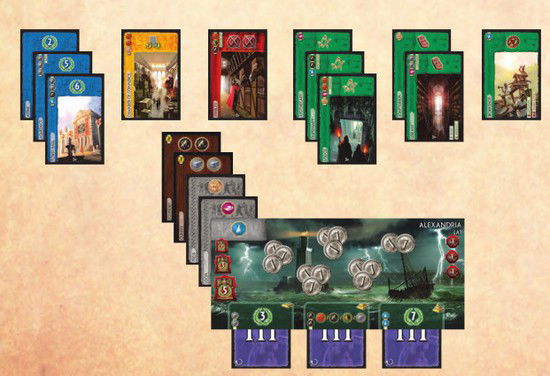
Playing 7 wonders: the rules
In each turn of each Era, the player will choose one of the cards that are in his hands to add to his civilization, if this player meets the prerequisites to draw that card, and will pass the remaining cards to the player next to him. (left or right depending on the Era). This movement will continue until there are 2 cards left in his hands, then he will choose one of them for his civilization and the other will be discarded.
After the 1st Age cards run out, there will be a military dispute between each civilization and its adjacent opponent. Then the cards of the 2nd Age will be distributed, repeating the whole process, and after these the cards of the 3rd Age. When the turns of the 3rd Age are over and the military dispute is resolved, the victory points of each civilization will be calculated through their scientific, military, financial, commercial and successful developments.
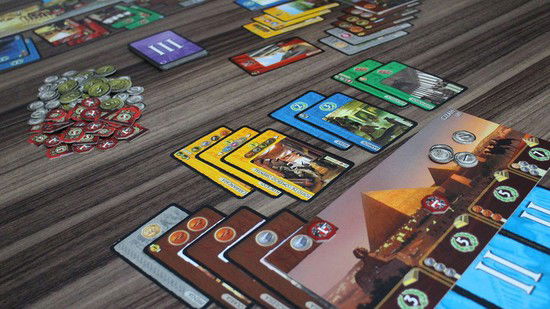
Each game usually lasts between 40-50 minutes and can involve 3-7 players. The game also features expansions for a 2-player duel game and the addition of historical personalities among other gameplay props.
Gameplay
Strategies to win in 7 wonders
OK, I'm starting to get it, but what strategies should I have in the game? How do I know I'm winning?
The object of the game is to maximize your points. As in each age you will draw 7 cards, in total you will see 21 cards in the game. Achieving a score between 50-60 is ideal; in close games you will have to score more than 65 points to win; this means that on average, each card should score approximately 3 points.
But the game is not that simple, cards that score more than 3 points tend to ask for something in return for them, like having a lot of natural resources to build them. If not, you will have to exchange resources with your neighbor. If your coins run out, you'll have to draw another card, something that will probably be worth less points. So 7 wonders ends up being a balance between drawing resource and victory point cards.
To make matters worse, the game gives you several resource cards at the beginning and almost none at the end. It is not enough for the player to know how to balance, he has to plan which resources to use right at the beginning of the game.
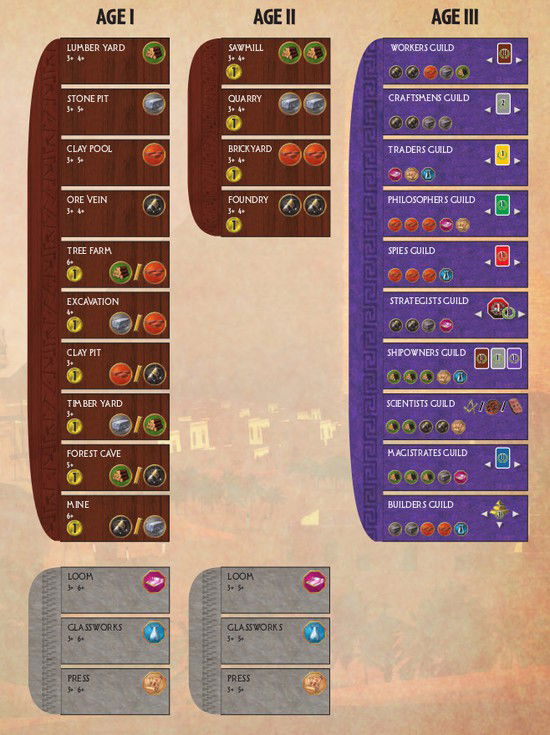
The types of victory points. How to win?
Military. Winning militarily is in itself impossible. Winning your neighbors militarily grants you 2 points in the first age, 6 points in the second age and 10 points in the last one. At most you will have 18 points. Try not to draw more than 6 military cards. If you're watching your neighbor imitate Genghis Khan by drawing every possible military card, leave him and focus on another form of victory.
Treasure. Just like military victory, winning by collecting a lot of coins is also virtually impossible. Every 3 coins saved is considered 1 victory point. A lot of coins is perhaps a sign that you bought a lot of resources that you didn't need, after all, you could have used the coins to pay for those resources.
Monuments . Each blue building generates your monument points. This type of victory is what most players usually follow since there is a direct relationship between build and points.
Civil constructions. Civil constructions are those that come in your civilization's playbook. They usually yield a good number of points and are mainly used when a good card is not drawn.
Science. Science can win you the game all by itself. If you do it right, you'll get up to 50 points. Science victory is even easier than the others because science cards allow free construction in subsequent ages. The problem is in the linear strategy where everyone is watching you build your scientific empire.
Commercial structures. Some commercial structures give you victory points if you complete something. There is a card for example, Chamber of Commerce, which gives you two victory points for each gray card in your city. These constructs are situational. Remember the maxim: a card must give at least 3 victory points.
Guilds. Like commercial structures, guilds are situational and will award victory points if you meet their requirements.

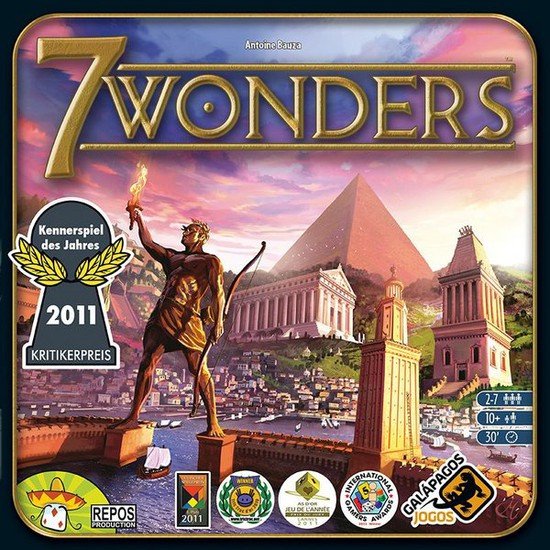







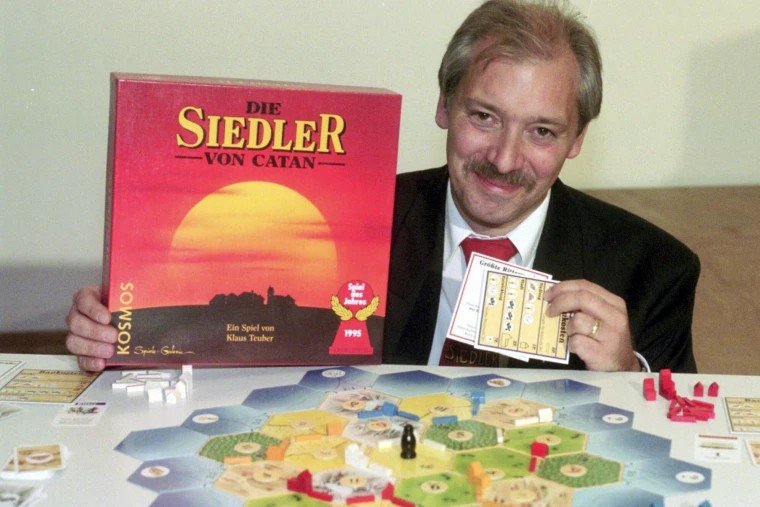



— Comentarios 0
, Reacciones 1
Se el primero en comentar